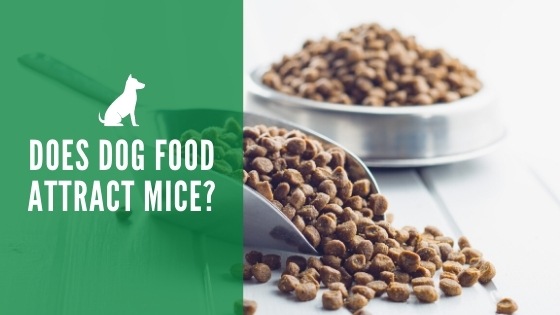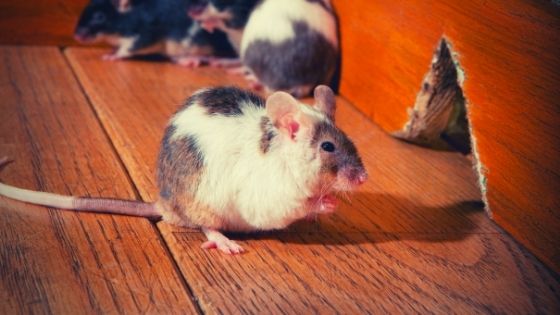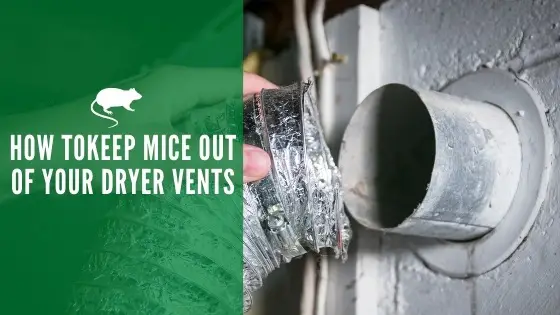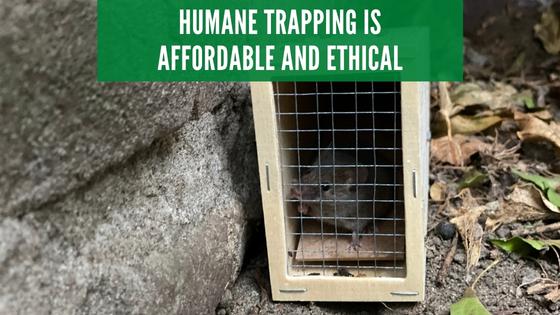Does Dog Food Attract Mice

Mice can move through very small spaces, which means you can find them almost anywhere in your home or on your property. They can make their home in your walls, underneath cabinets, or out in your garage.
They’ll move through your home to find sources of food. You may even find them at your dog’s food bowl. This isn’t a safe or healthy situation for you, your family members, or your beloved dog. Luckily, there are some steps that you can take to remove these mice from your home quickly and effectively.
Do Mice Eat Dog Food?
Dog food can attract rodents and plenty of other critters, including cockroaches. After all, it’s a free meal that’s already set out for them to access as they pass by. It has a very strong odor, attracting these unwanted house guests from quite a distance away.
Because mice will eat both meat and plants, there are ingredients in dog food that will tempt them. This includes things like meat protein, fats, grains, etc. Pretty much, mice will eat anything available to them. They get a pretty balanced meal from dog food left out for them.
How Do You Keep Mice Out of Dog Food?
There are a few different ways to prevent mice from getting into your dog’s food bowl. For instance, you can feed your dog at certain points during the day and evening. When they are finished eating, you should take away the bowl.
Clean up the bowl, discarding any leftover food that they haven’t consumed. This strategy is beneficial for your dog as well. You’ll prevent them from overeating, which can lead to being overweight.
You can set out traps that are designed to address the mouse problem that you have going on. Many people want to avoid using poison, especially when the mouse problem is inside the home. You can purchase traps that will kill the mice, but make sure that you’re putting the traps somewhere that your dog or children can’t come into contact with them.
There are also humane traps that will keep the mouse contained once it is caught. You can then relocate the mouse to somewhere outside where they won’t come back inside.
You want to make sure that you address the areas where the mice are coming into your home. Your home may be full of small gaps and cracks that you never knew existed. These cracks are large enough for mice and other insects to squeeze through, resulting in a possible rodent infestation.
Spend some time sealing off these areas, so there are no access points. When you start focusing on mouse control inside the home, you’ll prevent new mice from coming in. The current mice won’t be able to escape, so you’ll be able to trap them easily.
Will Mice Leave if They Smell a Dog?
We all know about mice and cats not being the best of friends, but that largely has to do with the cat wanting to hunt the mouse they’ve discovered. Research has shown that a class of urinary proteins secreted by cats and snakes repels mice from the area.
Do dogs let off a scent that repels mice? Mice will not be deterred by the smell of a dog, though they will take off if the dog is running around or moving towards them. Mice are pretty tolerant to things like other animals, messes, strong smells, etc.
Do Mice Carry Diseases?
There is a lot of structural damage that can occur when you have a rodent problem in your home, but there are other issues that you should be concerned with. For example, mice can carry diseases that can be spread to humans on a variety of surfaces.
That means you don’t have to come into direct contact with the mouse to contract the disease. Countertops and flooring are easily contaminated areas. Some of the most commonly carried diseases include:
Leptospirosis
A bacterial disease that can be spread through food and water that are contaminated with mouse waste. Leptospirosis causes fever, chills, nausea, etc.
Salmonellosis
This infection causes stomach and intestinal discomfort. Salmonella is a type of food poisoning caused by eating contaminated food that an infected mouse may have touched or placed on a contaminated surface.
Hantavirus
This virus can be airborne from mice feces, and you would become infected upon inhaling it. Hantavirus is commonly passed from deer mice.
It’s also possible that the mice you have in your home and on your property are infested with ticks. As we know, ticks can carry a whole host of diseases as well. This includes Lyme disease.
Can Mice Be Harmful to Dogs?
Mice can put your dog in danger. For instance, mice can contaminate your dog’s food or water bowls. Some dogs like to chase and consume mice that they find. If that mouse has any disease, it could very well be passed on to your dog.
An even more dangerous situation can arise if you have poison put out for the mice. If a mouse consumes the poison, has it in their system, and your dog consumes the mouse, this means that your dog is ingesting the poison. This can put your dog in a deadly situation very quickly.
If you’ve recently spotted mice in your home or on your property and were eating dog food or cat food, you will want to prevent this from happening again. You ultimately want to avoid anything that is going to attract mice in one way or another.
It only takes a short time for mice to multiply and take over an area, and they can do a lot of damage. If you don’t want to worry about getting rid of them, you need to be proactive. If traps and DIY strategies are not working for getting rid of your mouse problem, you should get in touch with a pest control professional as soon as possible.



